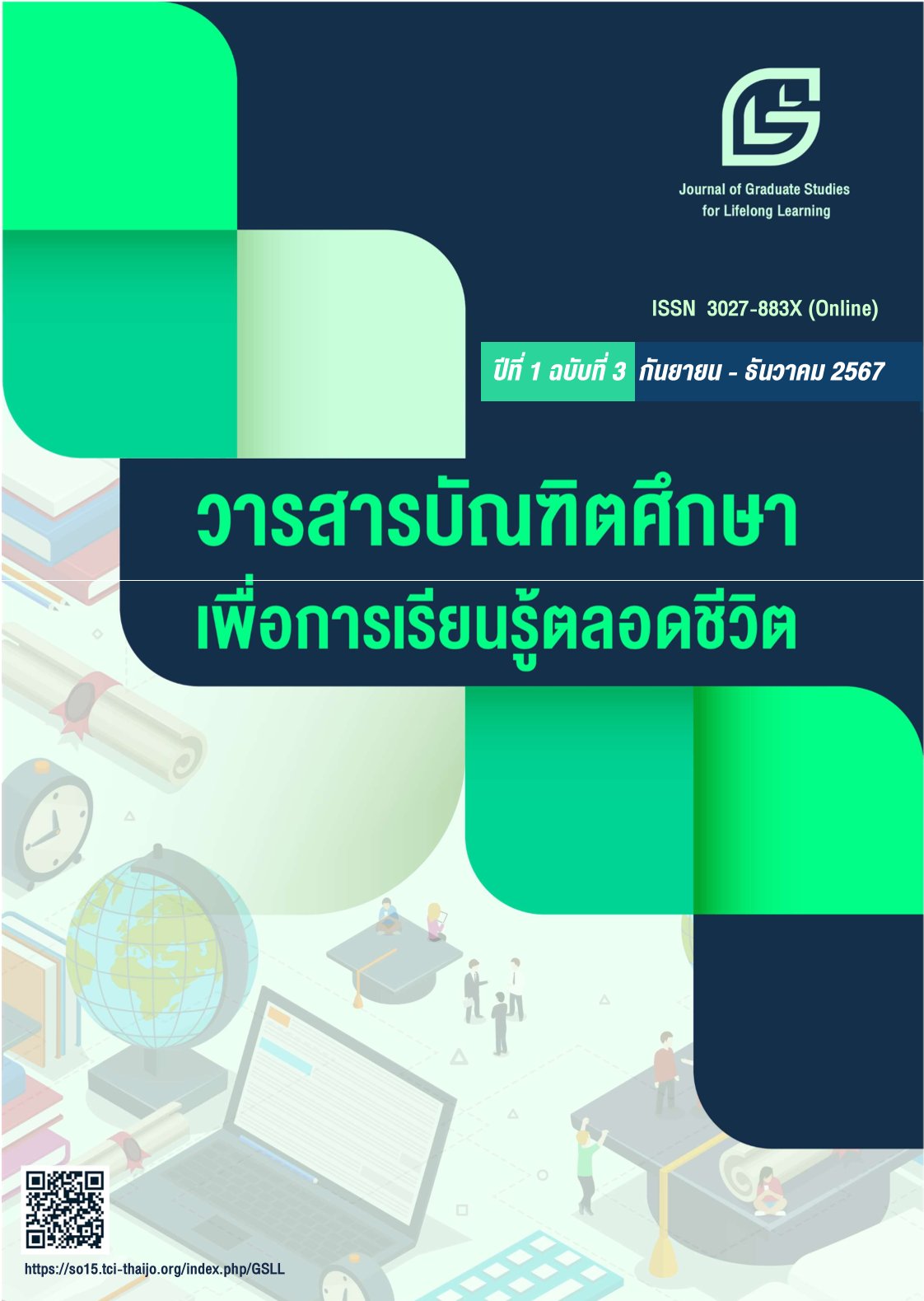The Study of the Opinions, Needs, and Expectations of Stakeholders Regarding the Bachelor of Science Program in Health Education and Health Promotion, Faculty of Public Health, Burapha University
Main Article Content
Abstract
The purpose of this research is to study the opinions, needs, and expectations of stakeholders regarding the Bachelor of Science program in Health Education and Promotion. Data was collected from 30 stakeholders involved in the program using a questionnaire developed by the researcher, along with in-depth interviews conducted from July to September 2021 during the program's operation. The data was analyzed through interpretation and summarization to ascertain facts in a descriptive format.
The research findings indicate that stakeholders have a positive view of the program, which offers diverse teaching methods that encompass both academic knowledge and practical skills. A key aspect of the teaching management is the promotion and integration of various essential skills through instructional processes aimed at developing specific competencies in health education and promotion, particularly through skill training and professional experience within the context of the Eastern Special Development Zone.
Additionally, the program emphasizes the organization of cooperative education and the integration of education with work. There are specific needs and expectations regarding the desirable attributes of graduates from the program, aiming for graduates to possess health knowledge and the ability to effectively apply this knowledge in their respective work contexts. Graduates are also expected to be lifelong learners who are open to new experiences and to possess essential life and work skills (Soft Skills).
Based on the study's results, it is recommended that the information be utilized to enhance the instructional design of the program's courses, promote extracurricular activities, and establish a framework for developing the desirable characteristics of graduates in the future.
Article Details

This work is licensed under a Creative Commons Attribution-NonCommercial-NoDerivatives 4.0 International License.
References
มหาวิทยาลัยบูรพา, กองแผนงาน. (2563). งานวิจัยสถาบันและสารสนเทศ. กองแผนงาน มหาวิทยาลัยบูรพา, https://planning.buu.ac.th/module/page.php?module=content/research&file=report.php.
มหาวิทยาลัยบูรพา, กองแผนงาน. (2564). แผนยุทธศาสตร์มหาวิทยาลัยบูรพา ประจำปีงบประมาณ พ.ศ. 2564 - 2567 (ฉบับปัจจุบัน). กองแผนงาน มหาวิทยาลัยบูรพา, https://planning.buu.ac.th/module/page.php?module=menu_new/menu_link&file=%E0%B9%81%E0%B8%9C%E0%B8%99%E0%B8%A1%E0%B8%AD.html#jump3.
มหาวิทยาลัยบูรพา, คณะสาธารณสุขศาสตร์. (2564). หลักสูตรวิทยาศาสตรบัณฑิต สาขาสุขศึกษาและการส่งเสริมสุขภาพ ฉบับปรับปรุง พ.ศ. 2564. มหาวิทยาลัยบูรพา.
มหาวิทยาลัยมหิดล, คณะสาธารณสุขศาสตร์ และสภาคณบดีคณะสาธารณสุขศาสตร์แห่งประเทศไทย. (2562). (ร่าง มคอ.1) มาตรฐานคุณวุฒิระดับปริญญาตรี วิทยาศาสตร์บัณฑิต สาขาสาธารณสุข ศาสตร์ (มิถุนายน 2562). มหาวิทยาลัยมหิดล.
มหาวิทยาลัยบูรพา, งานพัฒนาหลักสูตรและการสอน. (2559, ตุลาคม). คู่มือการเสนอหลักสูตรการศึกษา ตามกรอบมาตรฐานคุณวุฒิระดับอุดมศึกษาแห่งชาติ. งานพัฒนาหลักสูตรและการสอน มหาวิทยาลัยบูรพา, https://service.buu.ac.th/index.php/cid-manual-form/.
พรทิพย์ วงศ์ไพบูลย์. (2560). การเรียนรู้เชิงรุกและการมีส่วนร่วมของผู้เรียน (Active Learning). วารสารสถาบันวิจัยญาณสังวร, 8(2), 327-336.
ยศยง จันทรวงศา. (2558). การสนับสนุนทางสังคม ความเหมาะสมกันระหว่างคนกับสิ่งแวดล้อม และความผูกพันในงาน กรณีศึกษาพนักงานต้อนรับบนเครื่องบินบนสายการบินแห่งหนึ่ง [วิทยานิพนธ์ปริญญามหาบัณฑิต ไม่ได้ตีพิมพ์]. มหาวิทยาลัยธรรมศาสตร์.
รัศมี ศรีนนท์, อุดมกฤษณ์ ศรีนนท์, วิภารัตน์ ยมดิษฐ์ และกรรณิการ์ กิจนพเกียรติ. (2561). การศึกษาการจัดการเรียนรู้เชิงรุกในยุคไทยแลนด์ 4.0. วารสารการบริหารการศึกษา มหาวิทยาลัยศิลปากร, 9(2), 331-343.
สภาการสาธารณสุขชุมชน. (2562, 12 มกราคม). คุณลักษณะบัณฑิตที่พึงประสงค์ของ (ร่าง) มาตรฐานคุณวุฒิระดับปริญญาตรี วิทยาศาสตรบัณฑิต สาขาวิชาสุขศึกษา. สภาการสาธารณสุขชุมชน, https://ccph.or.th/index.php?p=filesdownload&id=61.
สภาการสาธารณสุขชุมชน. (2562, 12 มกราคม). คุณลักษณะบัณฑิตที่พึงประสงอค์ของ (ร่าง) มาตรฐานคุณวุฒิระดับปริญญาตรี สาขาวิชาสาธารณสุขศาสตร์. สภาการสาธารณสุขชุมชน, https://ccph.or.th/index.php?p=filesdownload&id=71.
Armstrong, D. G. (2003). Curriculum Today. Merrill Prentice Hall.
Bloom, S. B. (n.d.). ระดับขั้นความสามารถของบลูม (Bloom’s Taxonomy). Active Learning : Learning for All, https://web.rmutp.ac.th/woravith/?page_id=11322.
Dewey, J. (1910). How We Think. D.C. Health & co., publishers.
Frankelius, P. (2009). Questioning Two Myths in Innovation Literature. Journal of High Technology Management Research, 20(1), 40-51. https://doi.org/10.1016/j.hitech.2009.02.002
Henson, K.T. (2001). Curriculum Planning: Integrating Multiculturalism, Constructivism, and Education Reform (2nd ed.). McGraw - Hill.
Maryville, S. (1992). Entrepreneurship in the Business Curriculum. Journal of Education for Business, 68(1), 27-31.
McKeown, M. (2008). The Truth about Innovation. Prentice Hall.
Oliva, P.F. (2009). Developing the Curriculum (7th ed.). Allyn and Bacon.
Taba, H. (1962). Curriculum Development: Theory and Practice. Harcourt Brace Jovanovich.
Tanner, D, & Tanner, L.N. (1980). Curriculum Development: Theory into Practice (2nd ed.). Macmillan Publishing.


